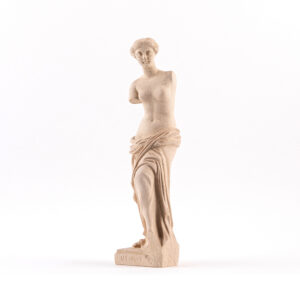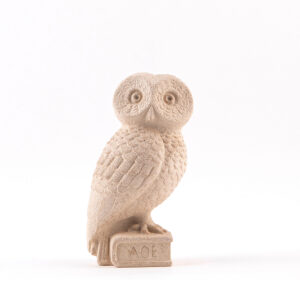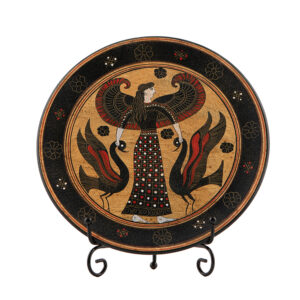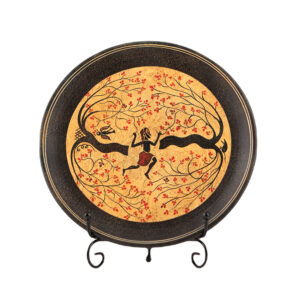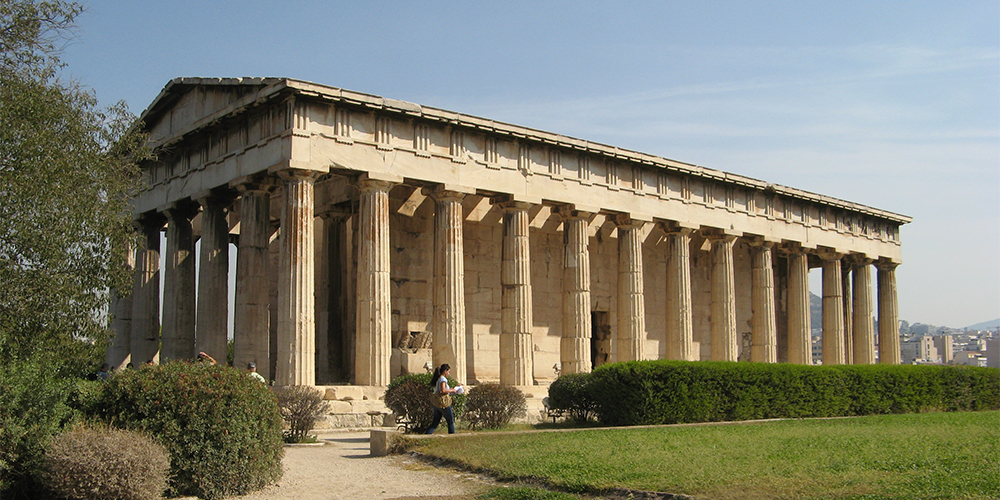
This is the second part of the article. The first part can be found here
Apollo: The god of light, music, poetry, healing, prophecy, archery, and truth
Apollo, the God of Music, Truth, Poetry, Light, Healing, and Archery, was son of Zeus and Hera. He was a handsome and talented young man, often depicted with a lyre, a bow and arrow, and a laurel wreath. His symbols included the sun, the laurel tree, and the swan.
He was known for his musical talent, his mastery of archery, his ability to heal, and his gift of prophecy. He was also a patron of the arts, poetry, and knowledge.
He was one of the main protagonists in the Trojan War, and he was responsible for the death of Achilles. He also played a key role in the founding of Troy and the establishment of the Delphic Oracle.
He was seen as a symbol of beauty, youth, and perfection. His legacy continues to inspire people today, and he remains a powerful symbol of music, poetry, and healing.
Artemis: The goddess of the hunt, the moon, wilderness, childbirth, and protector of girls
Artemis, the Goddess of the Hunt, the Moon, and Wilderness, was daughter of Zeus and Leto. She was a beautiful and independent young woman, often depicted with a bow and arrow, a hunting knife, and a crescent moon. Her symbols included the deer, the boar, and the cypress tree.
She was known for her skill in hunting, her love of the wilderness, and her fierce independence. She was also a protector of girls and young women.
Like the other Olympians, Artemis played a major role in Greek mythology. She was one of the main protagonists in the Trojan War, and she assisted many heroes in their quests, including Orion and Actaeon. She was also the patron goddess of Arcadia, and she was worshiped by hunters, midwives, and women seeking protection from childbirth.
Artemis was very popular and beloved goddesses in ancient Greece. She was seen as a symbol of freedom, strength, and independence. Today, she remains a powerful symbol of femininity, nature, and the wild.
Ares: The god of war, violence, and bloodshed
Ares, the God of War, Violence, and Bloodshed, was son of Zeus and Hera. He was a powerful and fearsome figure, often depicted as a muscular and armored warrior wielding a spear and shield. His symbols included the boar, the vulture, and the dog.
He was known for his love of battle, his insatiable appetite for destruction, and his violent temper. He was often at odds with other gods, and he was frequently involved in conflicts. However, he was also a courageous and skilled warrior, and he was respected for his strength and power.
He was one of the main protagonists in the Trojan War, and he fought on both sides of the conflict. He was also involved in the founding of Thebes and the slaying of many heroes, including Adonis and Penthesilea.
Ancient Greeks feared and respected Ares. His legacy continues today and he remains a powerful symbol of conflict, destruction, and the raw power of the human spirit.
Hephaestus: The god of fire, metalworking, sculpture, and craftsmanship
Hephaestus, the God of Fire, Metalworking, Sculpture, and Craftsmanship, was son of Zeus and Hera. He was a skilled craftsman and inventor, often depicted as an unimpressive and bearded man working at his forge. His symbols included the anvil, the hammer, and the tongs.
He was known for his skill in metalworking, his inventive genius, and his ability to create beautiful works of art. He was also a patron of craftsmen, artisans, and inventors.
He was responsible for creating many of the gods' weapons and tools, including Zeus's thunderbolt, Poseidon's trident, and Athena's armor. He also built the palaces of the gods on Mount Olympus.
Hephaestus was respected much in ancient Greece. He was seen as a symbol of craftsmanship, creativity, and perseverance. His legend remains today as a powerful symbol of the transformative power of fire and the creative spirit.
Aphrodite: The goddess of love, beauty, pleasure, and procreation
Aphrodite, the Goddess of Love, Beauty, Pleasure, and Procreation, was emerged from the sea foam. She was the embodiment of beauty, grace, and desire, often depicted as a beautiful and alluring woman with flowing hair and a radiant smile. Her symbols included the dove, the myrtle tree, and the rose.
Aphrodite was a complex and multifaceted goddess. She was known for her irresistible charm, her power to inspire love and desire, and her role in procreation. She was also a patron of women, lovers, and artists.
She was involved in the Trojan War, and she was responsible for the love between Paris and Helen, which led to the war's outbreak. She also played a role in the birth of many heroes and mythical creatures, including Aeneas and Eros.
Aphrodite was one of the most popular and beloved goddesses in ancient Greece. She was seen as a symbol of love, beauty, and pleasure. Today, she remains a symbol of romance, sensuality, and the creative force of love.
Hermes: The god of trade, thieves, travelers, sports, and athletes
Hermes, the God of Trade, Thieves, Travelers, Sports, and Athletes, was son of Zeus and Maia. He was a quick and cunning messenger, often depicted as a young man with winged sandals and a traveler's hat. His symbols included the ram, the tortoise, and the caduceus, a staff entwined with two serpents.
He was known for his speed, agility, and intelligence, and he was often tasked with delivering messages and carrying out errands for the gods. He was also a patron of travelers, thieves, merchants, and athletes.
He was involved in the Trojan War, and he assisted many heroes in their quests, including Odysseus and Perseus. He was also responsible for the invention of the flute, and he was credited with teaching humankind the art of writing.
Hermes was very popular in ancient Greece. He was seen as a symbol of speed, intelligence, and adaptability. Nowadays he remains a symbol of communication, travel, and the human spirit.
Hestia: The goddess of the hearth, home, and family
Hestia is sometimes replaced by Dionysus, the god of wine, festivity, and theater.
Hestia, the Goddess of the Hearth, Home, and Family, was the eldest daughter of Cronus and Rhea. She was the embodiment of domesticity, peace, and harmony, often depicted as a veiled woman tending a fire. Her symbols included the hearth, the flame, and the donkey.
She was known for her gentle and nurturing nature, her role in maintaining family unity, and her importance in preserving the sacred flame of the hearth. She was also a patron of homemakers, housewives, and those seeking tranquility.
Unlike the other Olympians, she did not actively participate in conflicts or engage in grand adventures. Instead, she remained steadfast in her role as the guardian of the hearth, symbolizing the stability and security of home. She was revered for her quiet strength, her unwavering devotion to her role, and her ability to foster harmony and unity within families and communities.
For the ancient Greeks Hestia was a symbol of domesticity, peace, and the enduring flame of family life. Even today her name is strongly connected to meanings like home and homeland.
Epilogue
As we conclude our exploration of the world of ancient Greek religion, let us reflect on the profound impact these deities and their stories have had on shaping human thought, culture, and art. From Zeus, the mighty king of the gods, to Hestia, the embodiment of domesticity and peace, each Olympian has left an indelible mark on our understanding of the divine, the natural world, and the human experience.
The ancient Greek pantheon was a dynamic system of beliefs, filled with tales of love, betrayal, heroism, and transformation. The gods and goddesses were not simply abstract figures; they were active participants in human affairs, influencing the course of events through their interventions and prophecies. Their stories were woven into the fabric of Greek society, providing guidance, solace, and inspiration to its citizens.
The influence of ancient Greek religion extends far beyond the shores of Greece. Its impact can be seen in the development of Roman mythology, the rise of Christianity, and the enduring fascination with classical art and literature. The Olympians have become universal symbols of power, wisdom, beauty, and the eternal struggle between good and evil.
While ancient Greek religion is no longer practiced in its original form, its legacy lives on. Its stories continue to captivate and inspire, reminding us of the power of myth and the enduring quest for meaning in the human experience. As we delve into the study of other religions, we recognize the common threads that connect us all – the search for answers to the mysteries of life, the yearning for connection to something greater than ourselves, and the enduring power of stories to shape our understanding of the world around us.
Discover more
The 12 Olympians: The 12 Supreme Gods in Greek Mythology - World History Encyclopedia
more moments
Recent Posts
Selected items from our collection
Share this:
- Click to share on Twitter (Opens in new window)
- Click to share on Facebook (Opens in new window)
- Click to share on LinkedIn (Opens in new window)
- Click to share on Reddit (Opens in new window)
- Click to share on Tumblr (Opens in new window)
- Click to share on Pinterest (Opens in new window)
- Click to share on Pocket (Opens in new window)
- Click to share on Telegram (Opens in new window)
- Click to share on WhatsApp (Opens in new window)

